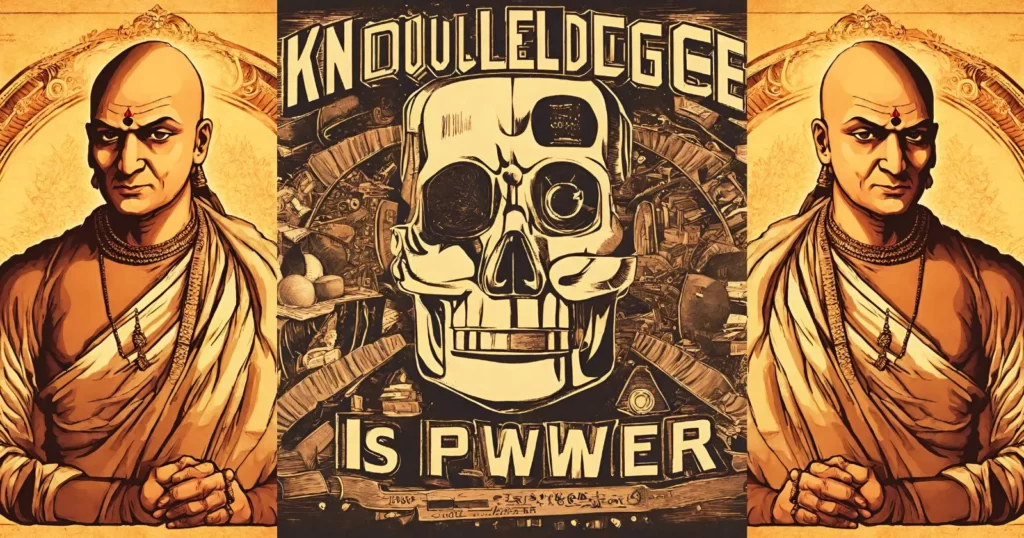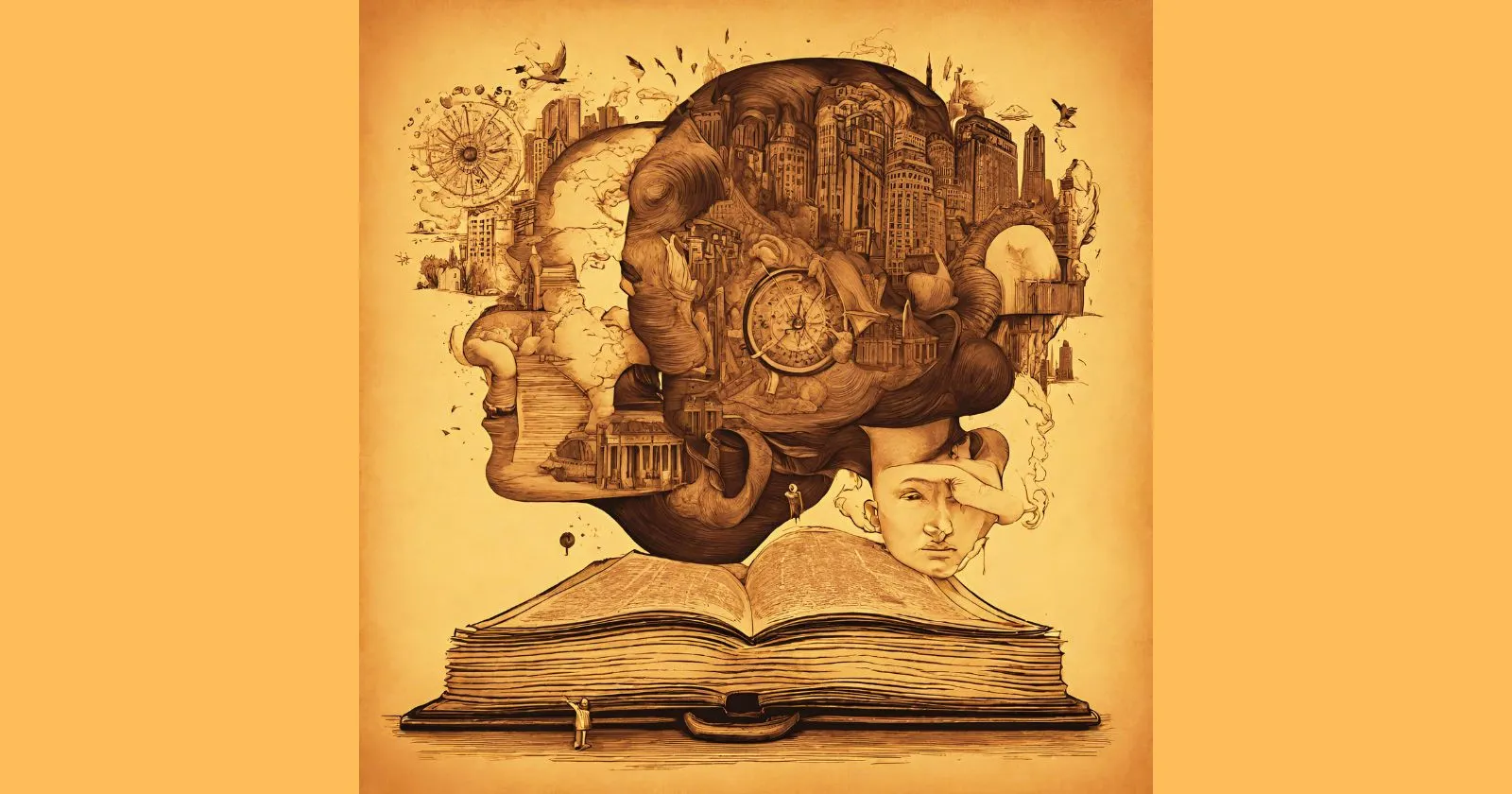KNOWLEDGE IS POWER
Knowledge is better than wealth, we have to protect wealth but knowledge protects us.
We explain what the phrase “knowledge is power” means, its origin, and authors who studied the relationship between power and knowledge.
What does ‘knowledge is power’ mean?
On many occasions we will have heard it said that knowledge is power, without knowing that this phrase is an aphorism attributed to Sir Francis Bacon (1561-1626), the English thinker and philosopher who originally formulated it as Scientia potentia est (in Latin). However, Bacon developed more broadly the notion of ipsa scientia potentias est (“Science itself is power”).
Thus, the phrase “Knowledge is power” was actually first used in the 1668 version of Leviathan by Thomas Hobbes (1588-1679). This English philosopher served as Bacon’s secretary during his youth.
Whatever the origin of the phrase, of which it is possible to find numerous variants, what is important is the way in which it is traditionally interpreted: as a statement that in education and the accumulation of knowledge, the true possibility is found. of the human being to be influential, to change, to grow and even to have professional success.
Relationship between knowledge and power
From the interpretation that we explained above, it is possible to understand the link that is established in human society between knowledge, that is, the accumulation of knowledge, and power.
In fact, this thesis is at the center of formal education in our societies, in which we value the ability of individuals to learn: knowing how things are done is not the same as following the orders of those who know. For this reason, knowledge is appreciated and guarded in more or less formal social circuits, such as academies.
The specialists in each area are in charge of imparting knowledge to their students, verifying the knowledge, questioning it and organizing it, allowing only those initiated to enter the knowledge. For example, that is what churches did with respect to their dynastic orders and universities operate in a similar way today.
Therefore, the aphorism can also be interpreted as saying that those who have knowledge will also hold power. Therefore, knowledge should not be given away, but rather requires strategic management, at convenience, among the different competitors. This is what happens, for example, when two companies compete to find the formula for making a new product.
Must Read:- Holistic, Inalienable, Divergent Thinking
Chanakya Niti

Chanakya, the great economist, was the general secretary of Chandragupta Maurya of India (approx. 376 BC – 283 BC). He is also famous by the name Kautilya or Vishnugupta.
Chanakya Niti: Chanakya has told about one thing which is above money, the one who has it is not afraid of troubles. Chanakya has considered it the biggest and most powerful weapon of man.
Chanakya Niti says that if we remain positive then it will not take much time to overcome the difficulties. Chanakya has shared his views in detail regarding money. He says that the fruits of hard work and solutions to problems are achieved by those who work honestly.
While money gives happiness, it also takes it away, but no matter how difficult life may seem, Chanakya has told about one thing which is above money, the one who has it is not afraid of troubles. Chanakya has considered it the biggest and most powerful weapon of man.
Knowledge is like Kamdhenu cow
According to Chanakya, the person who never hesitates in attaining knowledge cannot be touched by the clouds of sorrow. With the help of knowledge a person can reach the pinnacle of success. Chanakya considered a knowledgeable and intellectual person to be a better person than a rich person. A person with knowledge is respected everywhere, even if he is financially weak. Chanakya says that acquiring knowledge is like the Kamadhenu cow which provides nectar to man in every season, hence knowledge should be acquired whenever and wherever it is found. Knowledge never goes waste.
Experience along with knowledge leads to success
Knowledge and experience are two sides of a coin. A person has knowledge but gets experience only when he lives in that situation. It is also important to practice the things one has learned, only then a person is able to differentiate between good and bad in a better way. Experience is as important as knowledge in a person’s life.
According to Chanakya, this is such a quality on the basis of which a person can easily achieve the biggest goals. Never be proud of knowledge, knowledge increases when shared and through it a person achieves a high position.
Francis Bacon
The first Baron Verulam and first Viscount of Saint Albans, the Englishman Francis Bacon, was an important philosopher who, with his work, laid the foundations for the emergence of the modern idea of science, among other similar contributions.
He is especially recognized for having formulated an empirical theory of knowledge. Furthermore, he postulated the rules of the experimental scientific method, thus discarding Aristotelian science.
While he is not the true author of the aphorism “knowledge is power,” he wrote in his Meditationes Sacrae (1597) that Scientia potestas est, which he would translate as “knowledge is the power of it.” In this case he was referring to God, since in those times religious thought had not yet completely separated itself from philosophical and scientific thought.
Thomas Hobbes
Thomas Hobbes noted that the goal of gaining knowledge is power.
This English philosopher, considered the founder of modern political philosophy, revolutionized the way we think about ourselves. In his thought the first forms of liberalism and materialism appeared.
In his work De Corpore (1655) the thought that later crystallized in the aphorism “knowledge is power” already appears: the idea that the objective of knowledge is power, to the same extent as the objective of (scientific) speculation. ) is the triggering of some action or some change.
Michel Foucault
The French post-Marxist historian and philosopher Michel Foucault (1926-1984) was one of the most renowned intellectuals at the end of the 20th century. He is noted for his important theorizations about, among other things, the relationship between knowledge and power.
For Foucault, power is exercised around the ability to define “correct” and “incorrect” ideas as a certain belief system is imposed as hegemonic or central, taking the place of “truth.” Consequently, this system ends up defining the way we conceive reality and normalizing our way of living.

The passage captures the essence of how knowledge is not just a tool for personal growth, but a valuable resource that can influence societal structures and hierarchies. By controlling access to knowledge, institutions and organizations maintain their power, shaping not only individual opportunities but the broader competitive landscape. Thanks.